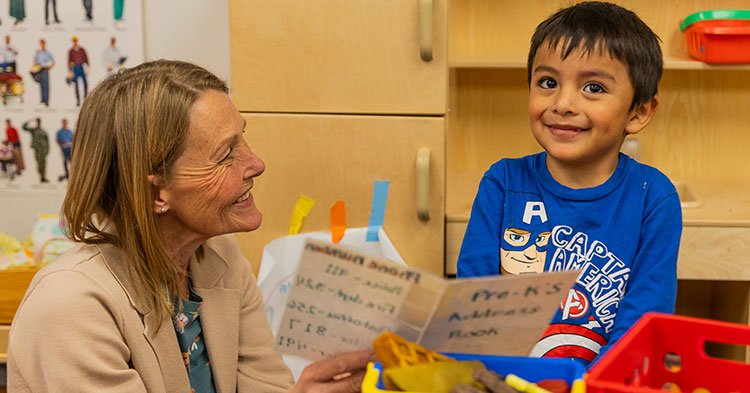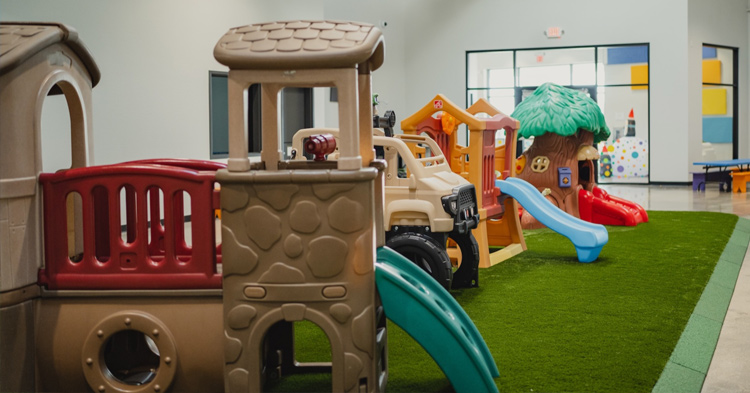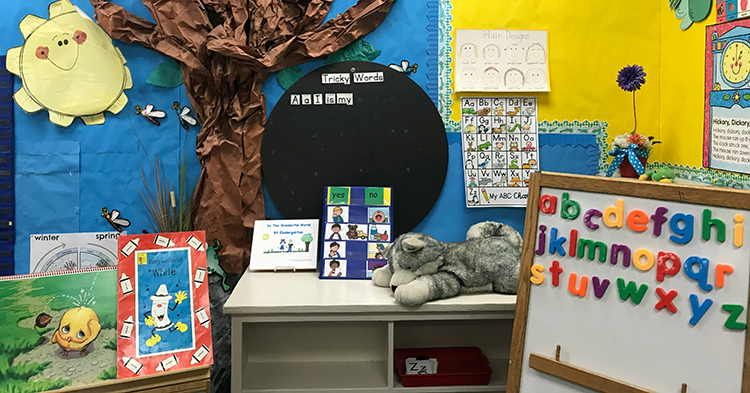
Child care isn’t just a family issue—it’s a business issue with financial implications.
On average, Arizona businesses lose $4.7 billion annually due to child care complications through reduced revenue and extra hiring costs, according to a study funded by the Helios Education Foundation.
We know that when we invest in early childhood, the economy thrives.
Art Rolnick, an economist and former head of research for the Federal Reserve Bank of Minneapolis, has studied the effects of early childhood development on the economy for over 20 years.
“We’ve discovered that too many of our children show up unprepared for kindergarten, and they never catch up,” Rolnick said. “The cost to our economy for failing to prepare these children is disturbing, as we essentially lose a significant percentage of our workforce.”
One thing is clear after multiple studies have demonstrated the effectiveness of early childhood education. Money invested in early childhood development yields extraordinary public returns, Rolnick said. The return on investment was an 18% inflation-adjusted return, he said.
A domino effect of child care and the economy
In Arizona, over 75,000 children do not have access to child care. That is a 16.5% gap between the supply and demand for quality, affordable child care. Working parents miss work, reduce their hours or quit due to child care disruptions—costing Arizona roughly $4.7 billion annually in lost earnings, productivity and revenue.
Rolnick advocates for early learning scholarships, such as First Things First’s Quality First scholarships, that allow parents to choose a quality program.
“Legislators, agency partners, business leaders and communities across our state need to join together to build a durable, long-term solution,” he said. “Without sustained political and financial support, the services these children need to thrive and (what) parents need to stay in the workforce are at risk.”
There is a clear recipe for success for the economy—and it starts with early childhood education.

|
|
Access and affordabilityAccessible and affordable child care is critical in supporting employee recruitment and retention—and a smart strategy for business and economic success. It creates a more focused, productive and committed workforce, allowing businesses to stay competitive. |
|
|
Quality early learningArizona’s economic future relies on a pipeline of skilled, motivated workers—and that pipeline starts in early childhood. Quality early learning programs build the foundation for the skills employers value most, including problem-solving, critical thinking, collaboration, communication and decision-making. |
 |
PerformanceChildren who have access to quality early childhood education go on to do better in school and in life. They are more likely to graduate from high school, pursue a higher education and earn more income over their lifetime. As a result, businesses benefit from a future workforce that is more skilled. Studies have shown that when these children have access to quality child care, their next generation of children go on to also succeed in life. |
 |
Improved societal outcomesNot only do children who receive quality child care perform better long-term, but these outcomes also contribute to a reduced dependency on social welfare programs and lower involvement in the criminal justice system. This strengthens communities by potentially breaking the cycle of poverty and reducing the long-term costs to taxpayers. |
 |
High return on investmentResearch shows that investing in quality child care yields a double-digit return. When it comes to Arizona, for every $1 invested in early childhood, communities see up to $16 in economic return. Investing in early childhood delivers long-term results for families, communities and Arizona’s economy. The earlier the investment, the greater the impact. |
“Early childhood education is one of the best investments we can make for short-term and long-term success of the economy.” – Art Rolnick
Similar to the rest of the nation, Arizona sees double-digit return on investment from early childhood education.
Impact of First Things First
As Arizona’s early childhood agency, First Things First (FTF) has generated $18.2 million annually in revenue as a result of FTF-supported activities without drawing from Arizona’s General Fund, according to an analysis by the Rounds Consulting Group. Through the agency’s work, $8.5 million was generated in state general fund revenues, and $9.7 million was generated in local government tax revenues.
FTF-supported activities include:
- Quality child care: Supporting quality improvements, child scholarships and professional development for teachers.
- Home visitation & screenings: Helping families prepare children for school and life.
- Family support and literacy: Empowering parents as their child’s first teacher.
Those FTF-supported programs contribute to $323 million annually in total economic output while sustaining 2,800 jobs. Investing in child care access isn’t just the right thing to do—it’s a win-win for families, businesses and the economy.
“Access to child care allows parents to be gainfully employed, learn new skills and advance the income within their households. This eventually gets passed on to their children as they grow up and are equipped with the same skills to succeed that their parents utilized.” – Jim Rounds, president of Rounds Consulting
How businesses can support
Businesses that support and invest in working families not only contribute to Arizona’s economy, but also directly enhance their own business’s performance and sustainability.
| Action | Impact |
| Support the workforce by investing in family-friendly policies | Helps reduce child care challenges and employee turnover. |
| Advocate for smart policy at the local, state and federal levels | Increases funding and access for child care, allowing parents to work. |
| Raise awareness among business leaders | Working families are drawn to employers who support them. |
| Partner with First Things First | Learn about resources to support your business and employees. |






